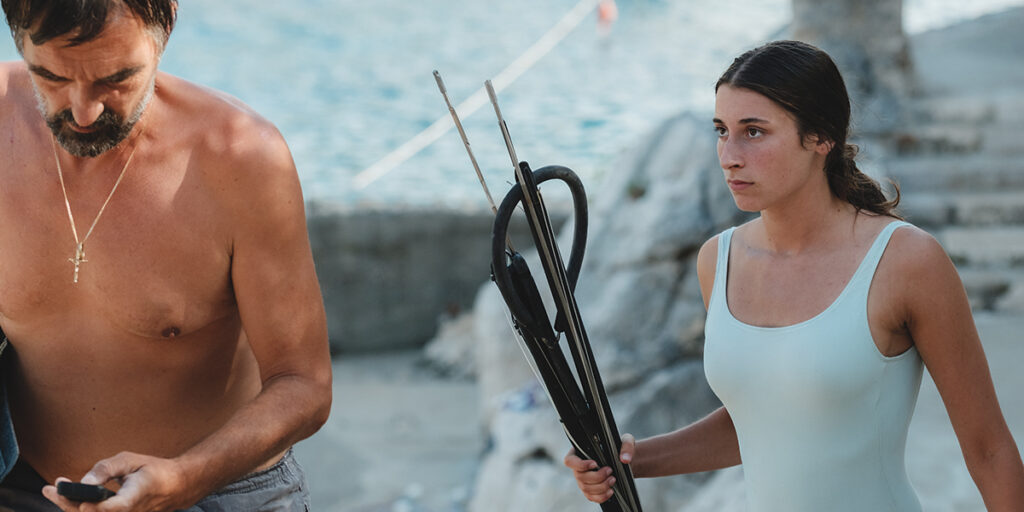TIFF Review: Murina
Written by Ian Thomas Malone, Posted in Blog, Movie Reviews, Pop Culture
There is a great abundance of film narratives centered on extraordinary people or individuals who achieved great feats in unthinkable circumstances. The same cannot really be said of ordinary people wishing to lead ordinary lives. As children, we’re often told that we’re special, even as the vast majority of us grow up to lead fairly mundane existences.
Antoneta Alaman Kusijanović’s film Murina explores the life of a girl who never received any kind of positive affirmation from her parents. Julija (Gracija Filipović) is a 16-year-old girl living on an isolated Croatian island. Julija is not particularly special, her most noteworthy talent being that she can hold her breath for a long period of time, a skill she puts to good use while spear-fishing with her father, Ante (Leon Lućev), an insufferably mean man who makes life miserable for her and her mother, Nela (Danica Čurčić). Isolated from anyone her own age, Julija spends her time being objectified by the men around her, almost always sporting a one-piece bathing suit.
A visit from Ante’s old friend Javier (Cliff Curtis) reopens old jealousies, Ante nearly driven mad by Javier’s much more successful career. Ante takes out his anger on Julija, getting even more frustrated by the kindness that Javier shows toward his daughter. While quiet and soft-spoken, Julija sees in Javier new possibilities for life beyond her father’s constant abuse.
Kusijanović presents an illuminating portrait of the long-term effects of living under the male gaze, a slow-burn narrative completely in sync with Filipović’s lead performance. Julija begins the narrative seemingly at ease with her underwhelming life prospects, gradually awakened by the possibilities of a world her picturesque purgatory. Filipović captures that moment so beautifully.
An a-ha moment is not a roadmap for life. The real world is a much bumpier ride, a notion that Kusijanović never loses sight of in the narrative. Murina’s narrative takes place over the course of a few days, hardly enough time for a young girl to break a long-standing pattern of abuse and live a happily ever after. Such a payoff wouldn’t hit home as hard.
The 95-minute runtime gives the audience plenty to chew on, a good amount of time to spend within Kusijanović’s world. At its core, Murina is a film about agency, and the difficulties that one has to face in wielding it. Kusijanović makes a strong argument for the power of telling kids that they’re special. It’s a lot harder to reach one’s potential If you’ve never been told there’s any point in trying at all.











